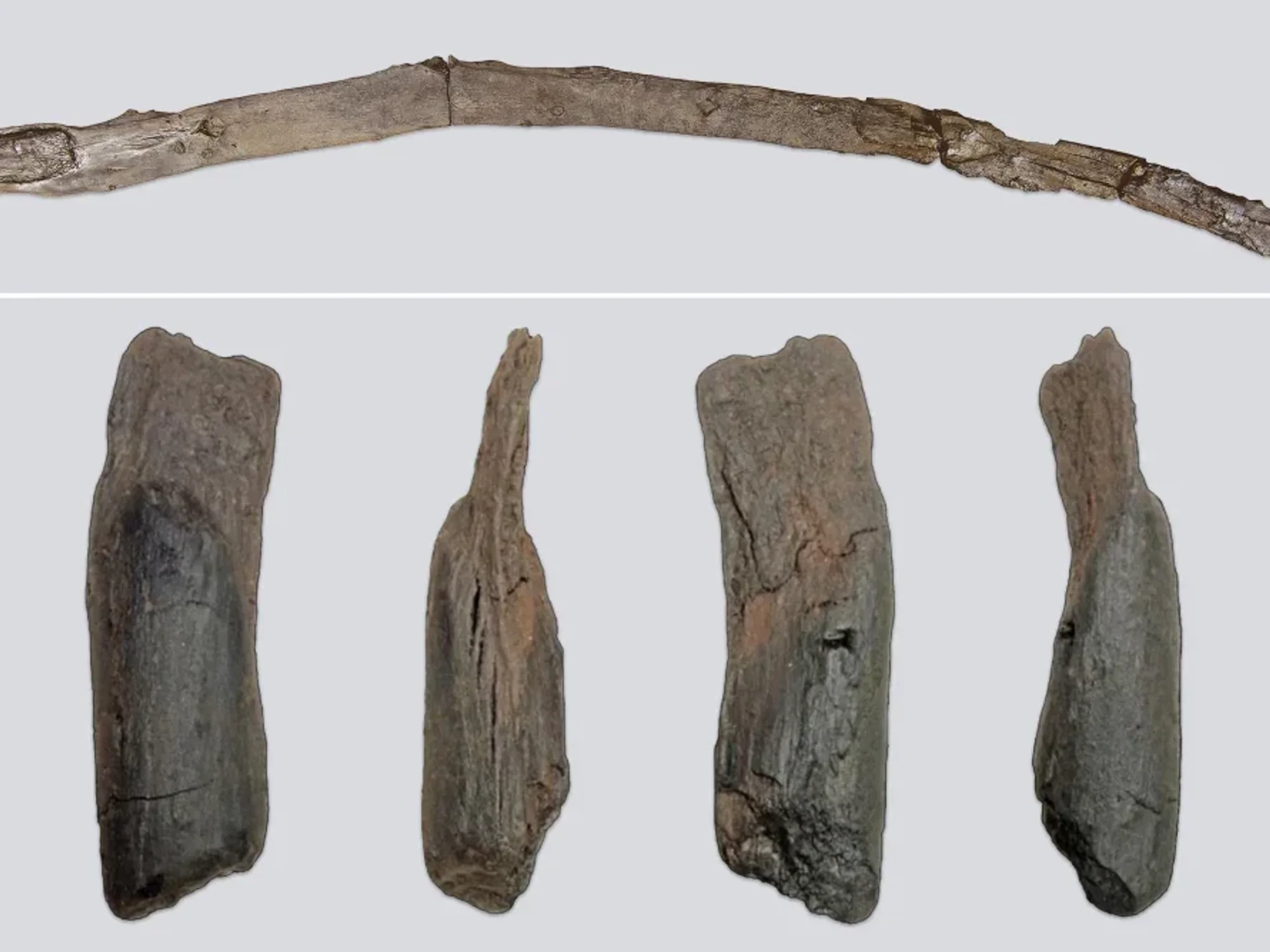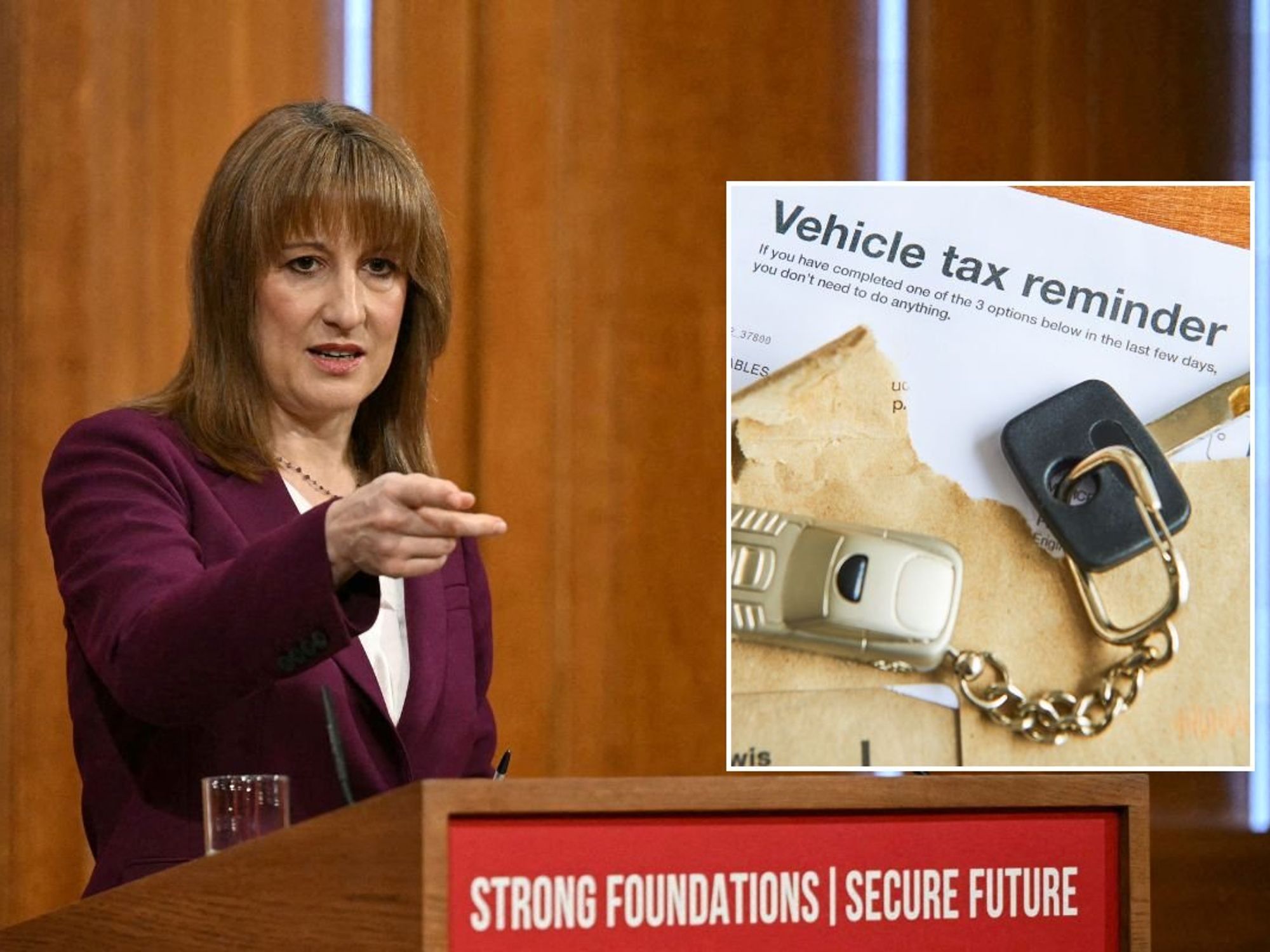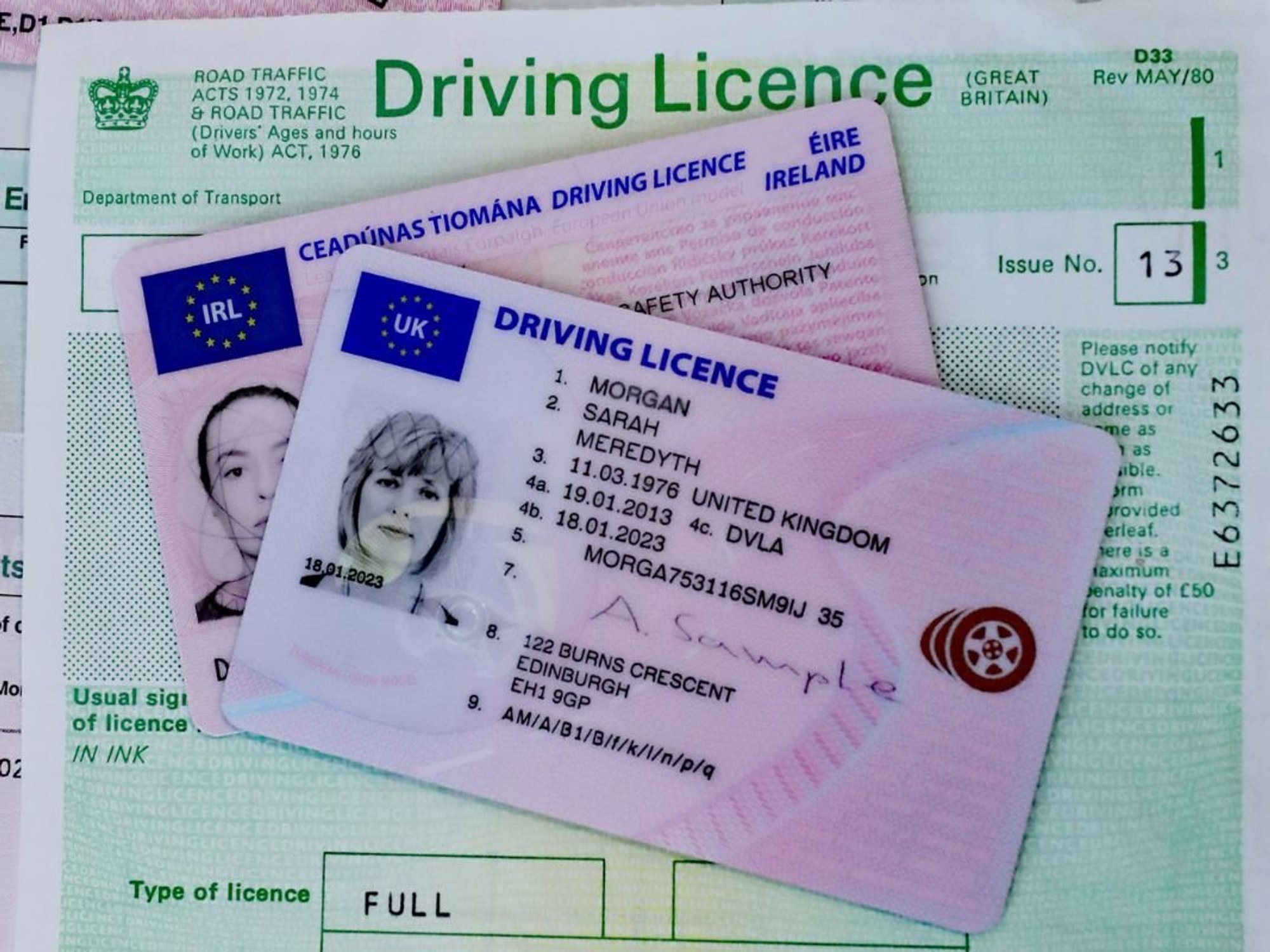Young people ditching alcohol for party drugs as new data reveals record high ketamine and MDMA usage
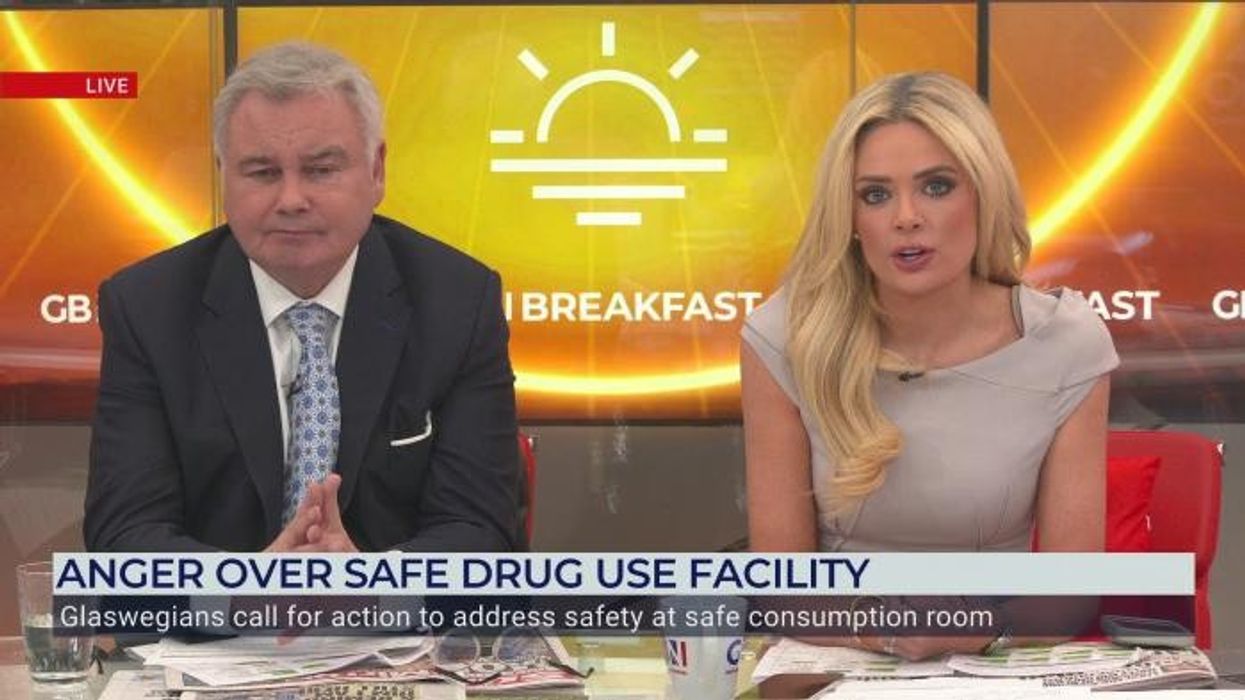
Glasgow turns in ‘open season for drug dealers’ as locals fume over SNP drug's hub experiment |
GB News
The number of people seeking treatment for ketamine has risen eightfold since 2014
Don't Miss
Most Read
Trending on GB News
Young Brits are ditching pints for party drugs as alcohol prices spiral, with ketamine and MDMA use soaring to record highs, new Government figures reveal.
A Home Office report has exposed an alarming surge in illegal drug use across England, with ketamine use up by 85 per cent, MDMA by 52 per cent and cocaine by 7 per cent over the past year.
Experts say the crippling cost of alcohol is fuelling the shift, with a new generation of party goers getting high for a fraction of the price of a night on alcohol.
Harry Shapiro, director of the drug information service DrugWise, said: "If drugs are cheap and alcohol prices are going up, there’s a section of the going-out population who will choose ketamine over booze.
"It is a dangerous point to be seeing people use potentially lethal substances just because they can’t afford to buy pints."
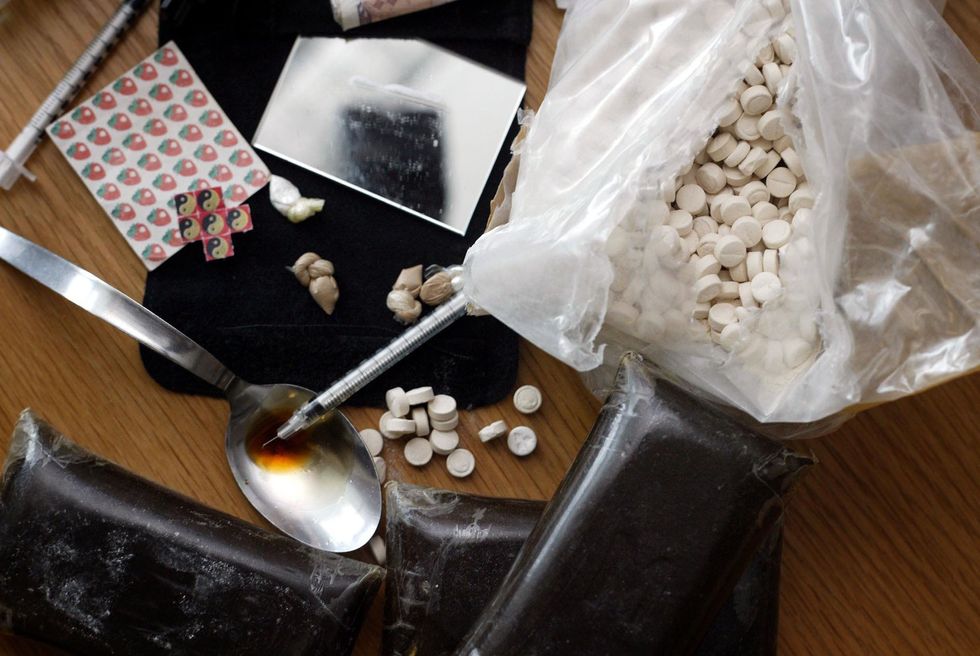
Party drugs, including ketamine and MDMA, are soaring to record highs, new Government figures reveal
|PA
The figures come from the Government’s Wastewater Analysis Programme (WWAP), which monitors drug residues flushed into sewers and paints a sobering picture of Britain’s nightlife habits.
Between January and April 2024, ketamine, cocaine and MDMA levels in wastewater spiked compared to the same period in 2023.
The data was collected from 16 sewage treatment sites representing around 10 million people, or 18 per cent of England’s population.
Urban areas reported the highest traces, suggesting young adults in cities are driving the trend, and experts are laying the blame at the door of soaring drinks prices and post-Covid social shifts.
Addiction specialist Zaheen Ahmed, from the UK Addiction Treatment (UKAT), said: "We’ve seen a 35 per cent rise in people entering treatment for ketamine addiction in the last year alone.
"What we’ve noticed in our rehabs since the pandemic is a striking generational divide.
"The majority of our alcohol addiction cases are Baby Boomers and Gen X, but when it comes to ketamine, it’s all Gen Z. They’re just not drinking as much anymore."
He added: "Ketamine and MDMA come with serious risks — from bladder failure and incontinence to hallucinations, memory loss, long-term brain damage, to symptoms similar to drug-induced psychosis."
LATEST DEVELOPMENTS: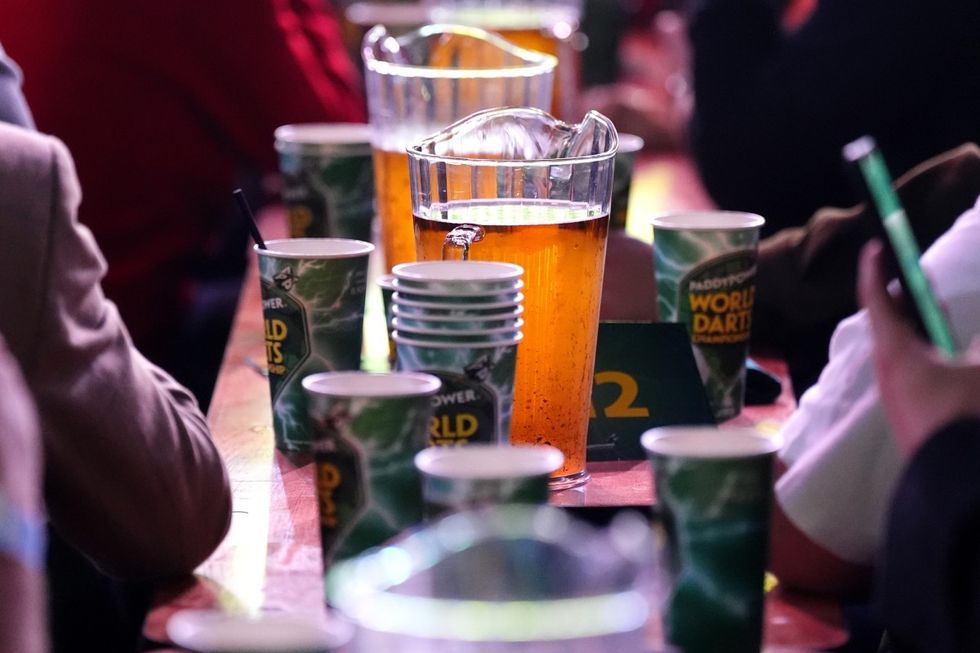
Gen Z in particular are ditching alcohol for drugs
|PA
UKAT says around one in five of their ketamine patients suffer from "K-bladder", a condition that can lead to chronic pain, incontinence and even surgery to remove the organ.
Anil Joshi, a leading ear, nose and throat surgeon who has treated young people for severe damage to their noses due to excessive cocaine use, said: "Every week I am seeing patients who have internal damage caused by recreational drug use.
"The harsh chemicals cause internal inflammation that the user may not see or realise until ultimately flesh is worn away and we have to try to rebuild what is left."
The low cost of these party drugs is an issue with the relatively expensive price of alcohol because younger people - who often feel invincible - are becoming enticed.
One 20-year-old student, who asked not to be named, said: "You go out and spend £80–£100 on drinks in a bar — a pint costs £8, a double shot with a mixer is £12.
"But I can do ket for £10–£20 all night, or get three MDMA pills for £25 that last me the weekend.
"It’s not hard to see why people choose that."
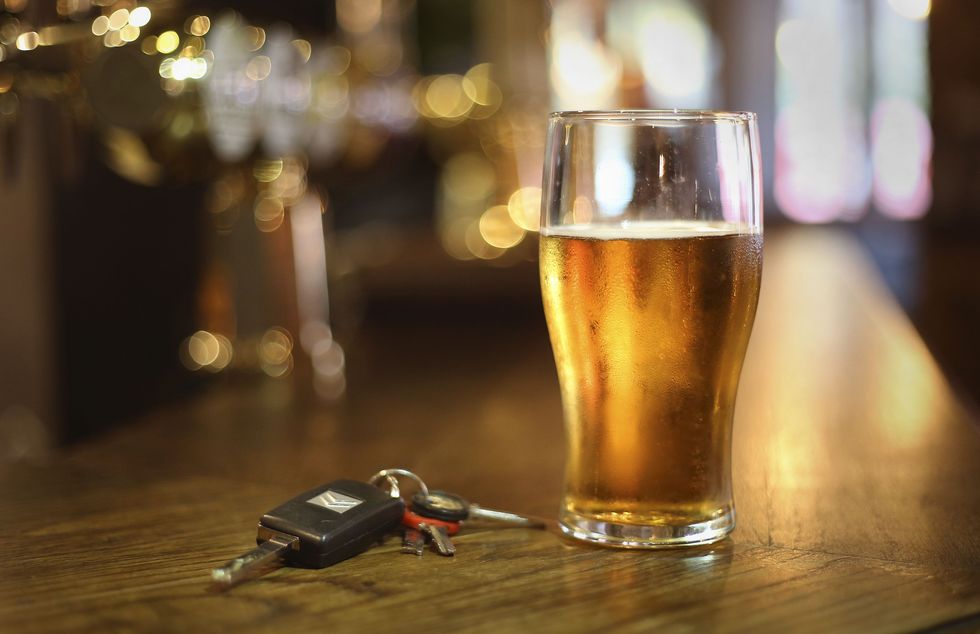
Students point to rising costs as one reason for turning away from alcohol on nights out
|PA
Official data shows alcohol prices have soared nearly 30 per cent over the last decade, and Chancellor Jeremy Hunt’s alcohol duty reform in 2023 hit spirits and wine the hardest.
The average price of a bottle of wine now sits at £7.50, while a night out can easily break the bank for young revellers.
Social media is making the problem worse. Students say drugs are easier to buy than a Deliveroo.
"You can order on Snapchat, SoundCloud or Telegram," said a 21-year-old student from Birmingham.
"It’s just like ordering a pizza. They even offer deals and same-day drop-offs."
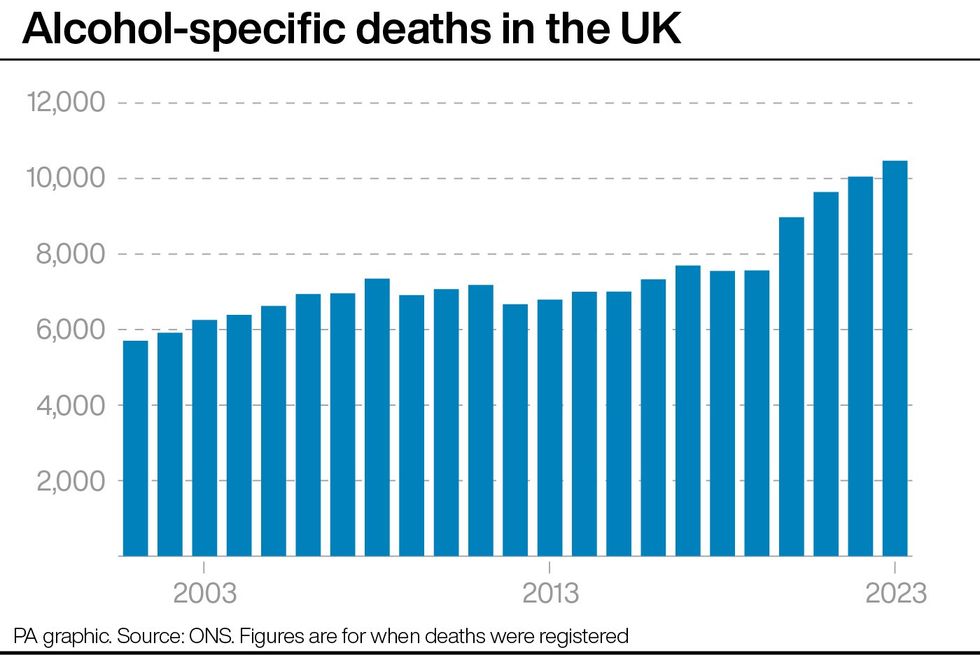
ONS data from 2023 shows alcohol-specific deaths in the UK
|PA
This mirrors findings from the Global Drug Survey, which reported a rise in young people buying drugs via encrypted messaging apps.
Over 60 per cent of UK users under 25 said they had sourced drugs online.
The Government insists it’s taking action, having recently pledged £310million to expand drug and alcohol treatment services across England by 2025.
"Kids aren’t turning to ketamine because they’re thrill-seekers," said one youth worker in Manchester.
"They’re turning to it because a night out has become unaffordable, and the streets feel easier to navigate on drugs than sober. That’s the real tragedy."
Ketamine, originally developed as a veterinary anaesthetic, is now one of the UK’s fastest-growing drug threats.
Long-term use can lead to "dissociative" symptoms — users feel detached from reality — and chronic depression.
In extreme cases, it causes irreversible bladder and kidney damage, and ulcerative gut disorders.
MDMA, meanwhile, can cause heart arrhythmias, overheating, and serotonin syndrome, especially when taken in combination with alcohol or other stimulants.
The number of people seeking treatment for ketamine has risen eightfold since 2014 and stood at 3,609 last year. But campaigners say much more needs to be done to tackle the root causes, including:
- Affordable nightlife options that don’t rely on pricey alcohol sales
- Early intervention and education in schools and universities
- Wider mental health support for vulnerable young people
GB News has approached No10 for comment
More From GB News






